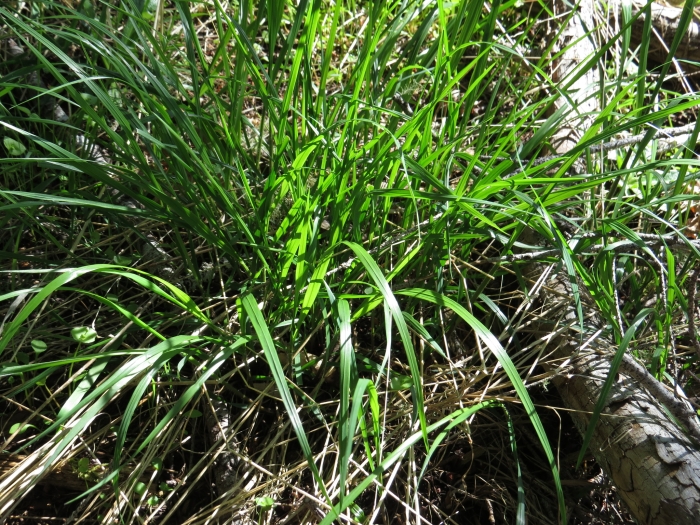Alaska Oniongrass
(Melica subulata)
Alaska Oniongrass (Melica subulata)
/
/

© Jack Bindernagel
CC BY 4.0
Image By:
© Jack Bindernagel
Recorded By:
Copyright:
CC BY 4.0
Copyright Notice:
Photo by: © Jack Bindernagel | License Type: CC BY 4.0 | License URL: http://creativecommons.org/licenses/by/4.0/ | Uploader: jbindernagel | Publisher: iNaturalist |
























Estimated Native Range
Summary
Melica subulata, commonly known as Alaska oniongrass, is a rhizomatous perennial grass native to a variety of habitats in western North America, including moist forests, grasslands, and open woodlands from Alaska to California and east to Colorado. It thrives in the understory of coniferous forests, particularly within the unique Douglas-fir/Alaska oniongrass plant community. This grass typically grows to a height of up to 4 feet (1.2 meters) and features a narrow or spreading panicle of cylindrical, pointed spikelets that bloom in late spring to early summer. The flowers are not particularly showy, but they add a delicate texture to the garden landscape.
Alaska oniongrass is valued for its adaptability to various moisture conditions and its use in ecological restoration projects. It is also appreciated for its ornamental qualities in garden settings, where it can serve as a graceful ground cover or accent plant. It prefers partial shade but can tolerate full sun in cooler climates. While it is not demanding in terms of soil type, it does best in well-drained soils. Alaska oniongrass is relatively low-maintenance, but it can be susceptible to rust diseases under certain conditions. It is not known to have aggressive roots or other problematic traits. This grass is not typically associated with invasiveness when grown within its native range.CC BY-SA 4.0
Alaska oniongrass is valued for its adaptability to various moisture conditions and its use in ecological restoration projects. It is also appreciated for its ornamental qualities in garden settings, where it can serve as a graceful ground cover or accent plant. It prefers partial shade but can tolerate full sun in cooler climates. While it is not demanding in terms of soil type, it does best in well-drained soils. Alaska oniongrass is relatively low-maintenance, but it can be susceptible to rust diseases under certain conditions. It is not known to have aggressive roots or other problematic traits. This grass is not typically associated with invasiveness when grown within its native range.CC BY-SA 4.0
Plant Description
- Plant Type: Grass
- Height: 1-2 feet
- Width: 0.5-1 feet
- Growth Rate: Moderate
- Flower Color: N/A
- Flowering Season: Spring, Summer
- Leaf Retention: Deciduous
Growth Requirements
- Sun: Part Shade, Full Shade
- Water: Medium
- Drainage: Fast, Medium, Slow
Common Uses
Low Maintenance
Natural Habitat
Moist forests, grasslands, and open woodlands
Other Names
Common Names: Tapered Oniongrass, Alaska Melic
Scientific Names: , Melica subulata, Bromelica subulata, Bromus subulatus, Festuca acerosa, Melica acuminata, Melica pammelii, Melica pammelii, Melica poaeoides var. acuminata, Melica poioides var. acuminata
GBIF Accepted Name: